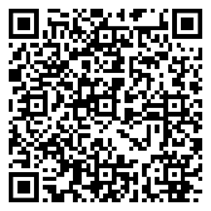Eating and drinking during radiotherapy to the pelvis
This page provides guidance on the benefits of a healthy, balanced diet during your radiotherapy treatment.
In order to improve the accuracy of your treatment, it is better if your bowels are opened on a regular basis. If you have an irregular bowel habit it is important to let your radiotherapy team know as they can advise or give you medication to help with this.
Reducing wind
Before your treatment planning takes place, it is useful to reduce the amount of wind or gas in the bowel.
Production of wind (or flatulence) is a natural part of the digestion process and most of it comes from the air we swallow when eating and drinking, and some comes from the types of food being eaten. Everyone has wind, which can lead to an excess being built up, which in turn can cause discomfort and affect the accuracy of the radiotherapy by pushing organs to a different position.
The advice on this page will help you to avoid a build-up of gas which will help to relieve any symptoms of trapped wind and stomach-ache during treatment.
The amount of wind we produce depends on the food eaten together with our own individual digestive process. A food and symptom diary may help you to identify which foods make your symptoms worse.
Food and drinks that can cause wind are:
- Brussel sprouts, cabbage, cauliflower, broccoli, onion, radishes, spinach, sweetcorn, peas, lentils, beans and pulses
- Spicy foods (if you are not used to them)
- Excessive amounts of fruit or dried fruit
- Fizzy or carbonated drinks, beer/lager
- Large amounts of artificial sweeteners and sugar-free sweets
- Chewing gum
- Caffeine
You should try to identify possible causes of wind in your diet and try to reduce them during your radiotherapy treatment.
The following suggestions will help you to maintain a healthy bowel habit:
- Aim to have a regular meal pattern and do not skip meals or leave long gaps between eating.
- Take time to eat your meals, eat foods slowly and chew foods well.
- Minimise swallowing air when eating:
- Do not talk while you are eating.
- Drink slowly – sip drinks rather than gulping, especially when taking tablets.
- Avoid using straws or drinking directly from a bottle.
- Avoid carbonated drinks such as soda water, sparkling water, cola, lemonade etc.
- Avoid chewing gum or smoking.
- Eat in a relaxed atmosphere.
- Take time to relax.
- A small amount of light physical activity each day will encourage bowel movement, for example walking or stretching.
- Oats and whole or ground linseed (up to 1 tablespoon) will help to relieve wind.
- Empty your bowels while sitting correctly – it is easier when in a squatting position. Put your feet on a footstool to raise your knees higher than your hips and lean forward.
- Peppermint tea or peppermint oil may help relieve wind or bloating.
Make one change at a time so that you can identify what has helped and made a difference.
Fluids and their importance
Water is essential for life. We need water to get rid of waste products from the body, keep our skin healthy and replace water lost through breathing and sweating.
If you do not drink enough fluid each day you can become dehydrated. This can cause:
- Tiredness
- Nausea
- Light – headedness or dizziness
- Irritability
- Poor concentration
- Constipation
- Wind and bloating associated with constipation
- Headaches
- Dry skin and mouth
- Urine will become concentrated; dark in colour and strong in smell
Keep a check on the colour of your urine – if it is dark, this is an indication that you need to drink more.
How much fluid do I need to drink?
During your treatment you should aim to drink 2 litres of fluid each day, dependent on weight or unless previous medical advice given to you states otherwise. This is equal to 3½ pints or 8 tumbler glasses. The radiographers or doctor may advise you to drink more as your treatment progresses; they will discuss this with you if needed.
What should I drink?
The best types of fluid to drink during your treatment are water, milk, still squash and herbal or fruit tea. If you drink tea or coffee, be aware of the amount of caffeine you are consuming. It is recommended that you switch to decaffeinated versions.
Caffeine and alcohol are dehydrating and can irritate your bowel and bladder which is why we suggest you avoid drinking these. If you are reducing your caffeine intake do this slowly, day by day, otherwise you may experience some headaches.
Fluid intake is particularly important during your radiotherapy treatment as it helps to prevent constipation, wind, bloating and keeps your bowels opening regularly.
Some fruit juices might interfere with the way some medicines work. Discuss this with your GP or pharmacist before starting to drink cranberry or grapefruit juice.
What is fibre?
Fibre is the part of food the body cannot break down. As fibre passes through the bowels it absorbs water like a sponge, making the contents of your bowels soft and bulky. This helps the muscles in the walls of your bowel assist the food to pass through your gut more easily.
When your diet is low in fibre, the gut struggles to work well and can lead to constipation. Fibre is an important part of a healthy balanced diet. It helps with the normal functioning of the bowel and has many other health benefits.
Fibre comes from 3 main sources; fruit, vegetables and wholegrain cereals. There are 2 types of fibre and our bodies need both:
Soluble fibre - this type of fibre can be digested by the body and is turned into a gel by the natural bacteria in the bowels, making your stool softer and bulky. Foods containing soluble fibre include oats, lentils, pulses (peas, beans and lentils), fruits and vegetables.
Insoluble fibre – this type of fibre cannot be digested and is not as easily broken down. It passes through the body mostly unchanged, but does absorb water. This increases the size of your stool and helps improve bowel movement. Foods with insoluble fibre include fruit and vegetables with skins, pips, nuts, seeds and wholegrains.
Fruit and vegetables contain a mixture of soluble and insoluble fibre.
Should I eat fibre during my treatment?
It is important to eat foods containing fibre as part of a healthy diet during your radiotherapy treatment in order to keep your bowels opening regularly. Fibre has other benefits including reducing the risk of heart disease, keeping the inside of your bowel healthy and preventing constipation.
If you are altering your dietary fibre intake, do this gradually to allow your bowel time to adjust.
What if I develop diarrhoea?
Radiotherapy to the pelvis can irritate the bowel and cause diarrhoea. You may experience wind and/or stomach cramps.
These symptoms may happen from a few days to 1 to 2 weeks after starting treatment and can continue for some weeks after your radiotherapy treatment has been completed. This depends on the area of your pelvis being treated.
If you experience diarrhoea during your treatment, let your radiographers or doctor know as they can recommend medication to help with this. You will need to drink more fluids to replace those lost. Your radiographers or doctor will give your further advice.
If you are taking laxatives for constipation, you should let your treatment team know. You may be advised to stop these.
There is no evidence to suggest that reducing the amount of fibre in your diet will improve diarrhoea caused by radiotherapy.
There is a study showing that a high fibre diet is beneficial for people with radiation-induced diarrhoea. For more information, please visit the Macmillan Cancer Support and Cancer Research UK websites listed at the end of the page.
Continue with your normal diet during treatment. Certain foods and drinks may worsen the diarrhoea. Small, simple dietary changes may temporarily be required that will be tailored to your individual needs. It is important to avoid any unnecessary dietary restrictions.
The information above provides general guidance and ideas. If you require more information or guidance, please ask your radiotherapy team.
Further information
Further information about eating and drinking during radiotherapy to the pelvis is readily available online. We would recommend beginning with:
Macmillan Cancer Support
Website: www.macmillan.org.uk

Cancer Research UK
Website: www.cancerresearchuk.org

The QR codes above and below will direct you to further resources relating to your radiotherapy treatment. You can use your smartphone camera to scan the codes.
Macmillan: Understanding Radiotherapy

Further support will be available locally. Please speak to your oncology team who can advise what local charities are there to help you. They can also give you details of available support groups near you.
References
- Wedlake L, et al. (2017) Randomized controlled trial of dietary fiber for the prevention of radiation-induced gastrointestinal toxicity during pelvic radiotherapy. The American Journal of Clinical Nutrition, 106 (3): pp849–857
- Crosier, E et al. (2021). The Efficacy of Dietary Fiber in Managing Gastrointestinal Toxicity Symptoms in Patients with Gynecologic Cancers undergoing Pelvic Radiotherapy: A Systematic Review. Journal Of The Academy Of Nutrition And Dietetics, 121 (2): pp 261-277